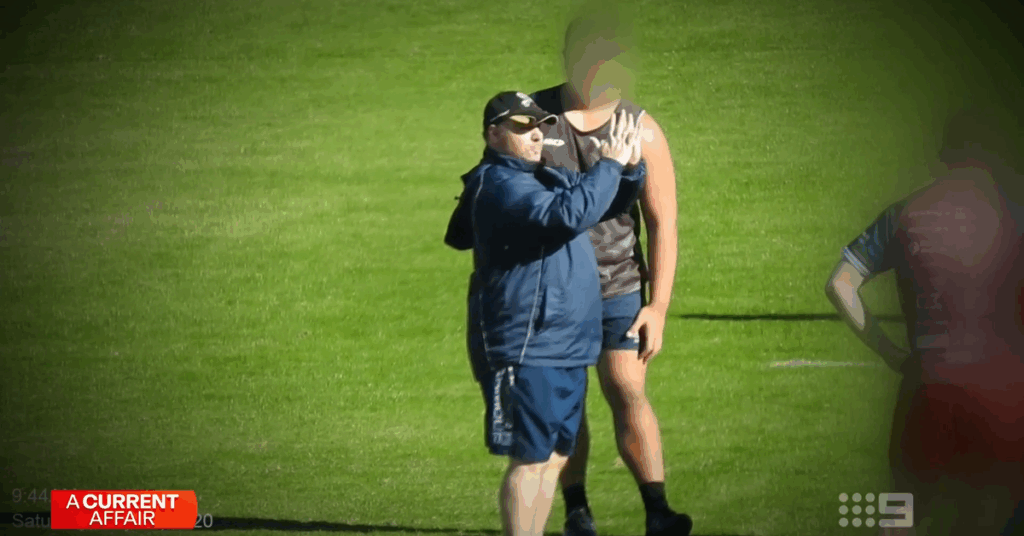
Struggling business owners in Queensland are calling for an inquiry into a $7 billion workers’ compensation scheme, fearing it is being exploited by employees filing fraudulent claims. The situation has prompted some employers, like Rodney Johnston and Rex Vegt, to hire private investigators to probe these allegedly bogus claims.
Johnston, who owns Bulk Granite Haulage, has grown his family business from a single truck to a fleet of 185, generating an annual turnover of $120 million. He was compelled to enlist a private investigator after his former office manager, Peta Durston, received two years’ worth of compensation payments for a psychiatric injury reportedly sustained during an argument at his office north of Brisbane. However, surveillance revealed Durston giving horse riding lessons, allegedly as a volunteer, while claiming to be totally incapacitated for work.
A forensic examination of Durston’s computer uncovered searches such as “framing boss for work compensation” and “starting argument with boss while recording.” Despite spending $400,000 to contest the claim, Johnston’s appeal was successful, but the compensation payments were not required to be returned. “I think they should have paid our costs, and they should have made her pay the money back,” Johnston stated. “She planned it weeks and weeks before. It wasn’t just on the spur of the moment. It was planned,” he claimed.
WorkCover Queensland Under Scrutiny
WorkCover Queensland, a government-owned but self-funded insurance scheme, is mandatory for all businesses with fewer than 2000 employees. “It’s a smidgen under a million dollars a year, works out at $500 an hour and people just claim it for anything,” Johnston remarked. Out of 74,000 claims last year, the regulator prosecuted just nine cases for fraud.
Rex Vegt, owner and general manager of Atlas Heavy Engineering, is facing similar challenges. His workers are dismantling his steel fabrication factory north of Brisbane due to escalating business costs. Vegt also hired a private investigator to follow up on an employee, Paul Robson, who was receiving compensation payments for a shoulder injury. Despite claiming he was unable to work, Robson was filmed coaching a rugby team, running lineout drills. “We were astounded,” Vegt said. “The particular person couldn’t even walk across the car park because he was in so much pain.” However, when Vegt provided the footage to WorkCover, instead of revoking Robson’s payments, they reclassified his claim from a physical injury to a psychological one.
Economic Pressures and Fraudulent Claims
Vegt believes that economic hardships are prompting some individuals to exploit the system. “History tells me that when the economy gets tough like it is at the moment, people look for the easy way out to get money. WorkCover is an easy target,” he claimed. “WorkCover, basically, in my opinion, is the next NDIS.”
After 25 years at the helm of his company, Vegt finds it increasingly difficult to operate a manufacturing business in modern Australia due to rising costs, particularly electricity. “Then you’ve got your superannuation, you’ve got all the payroll tax, you’ve got all the other taxes, and then on top of all that, you have WorkCover,” he explained. “The way things are currently, with all the other costs increasing on business, companies are going to say it’s all too difficult for me, and they’re just going to close.”
WorkCover’s Response and Future Actions
In response to these concerns, WorkCover Queensland has stated that enhancing its fraud detection capabilities is a priority. “One of WorkCover’s key priorities this year is to enhance the identification of, and response to, suspected fraud in Queensland’s workers’ compensation scheme, both in relation to workers and employers,” a WorkCover Queensland spokesperson said.
One of WorkCover’s key priorities this year is to enhance the identification of, and response to, suspected fraud in Queensland’s workers’ compensation scheme, both in relation to workers and employers. This helps to maintain a fair and sustainable system for all Queenslanders. WorkCover receives almost 94,000 claims for compensation each year, has the lowest premium rate of any state or territory in Australia, and supports over 90% of injured workers to return to work every year.
The Office of Industrial Relations has reiterated its zero-tolerance stance on workers’ compensation fraud. “Our priority is to support injured workers in their recovery and safe return to work, while ensuring businesses have confidence in a fair and transparent system—not one undermined by fraudulent claims,” they stated.
The Crisafulli Government has a zero-tolerance approach to workers’ compensation fraud. Our priority is to support injured workers in their recovery and safe return to work, while ensuring businesses have confidence in a fair and transparent system—not one undermined by fraudulent claims. WorkCover Queensland’s new leadership has made fraud detection a priority action. Since 1 July 2025, two workers have been prosecuted by the Workers’ Compensation Regulator and sentenced to serve time in prison for defrauding WorkCover Queensland requiring amounts to be repaid of close to $170,000. Separately, an employer was fined $95,000 for providing false information to WorkCover Queensland.
As the debate over the integrity of the WorkCover scheme continues, Queensland businesses and authorities must navigate the challenges of maintaining a fair system while preventing fraudulent claims. The outcomes of these investigations and reforms will likely shape the future landscape of workers’ compensation in the state.







